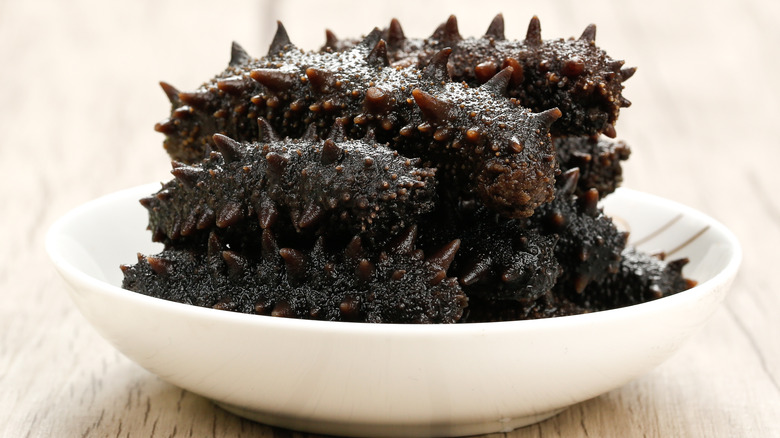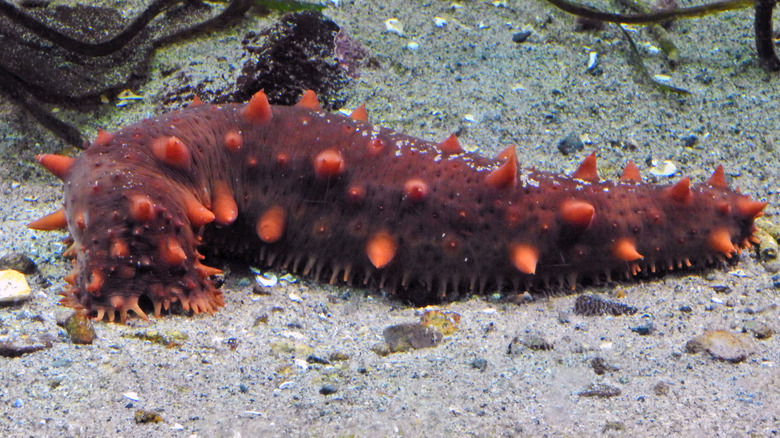The Health Benefits Of Sea Cucumbers Explained
Not to be confused with the kind of cucumber that grows in your garden, a sea cucumber is an invertebrate that makes its home on the ocean floor, according to National Geographic. With a lifespan of up to 10 years, these omnivores can measure anywhere from less than an inch to over 6 feet long. With several rows of tiny, tubular feet, these plump, colorful, larvae-looking creatures make their way along the bottom of the ocean in search of algae and small marine critters for nourishment, according to Live Science.
Deemed a delicacy in areas of Southeast Asia, sea cucumbers are also recognized for their medicinal benefits (via The Conversation). As per Healthline, a 4-ounce serving of Alaskan yane sea cucumber is made up of 60 calories, 14 grams of protein, and less than 1 gram of fat. Additionally, you'll get a healthy dose of vitamins and minerals including vitamin A, calcium, magnesium, and B vitamins — so much so that you'll knock out 81% of your recommended daily intake of vitamin B2 with this serving alone. So exactly what kinds of health benefits are there to be gained from eating sea cucumbers?
Pros and cons of sea cucumbers
According to 2011 research published in Marine Drugs, certain species of sea cucumbers are thought to have anti-inflammatory, antioxidant, anticancer, antimicrobial, and antitumor properties, amongst others. With all these health benefits to offer, sea cucumbers may help protect against certain health conditions such as asthma, hypertension, impotence, constipation, and more. Also referred to as beche-de-mer, sea cucumbers may also support healthy wound healing. Overall, however, more research into sea cucumbers and their effects on humans is still needed (via Healthline).
However, for those with certain health conditions, sea cucumbers may not be safe for consumption. Because sea cucumbers can act as an anticoagulant (via Marine Drugs), Healthline reports that eating sea cucumbers can increase one's risk for bleeding if a person is already taking blood thinners. Additionally, although they are not considered shellfish, sea cucumbers may come in contact with shellfish at restaurants or during processing. As a result, those with shellfish allergies are advised against eating sea cucumbers.


